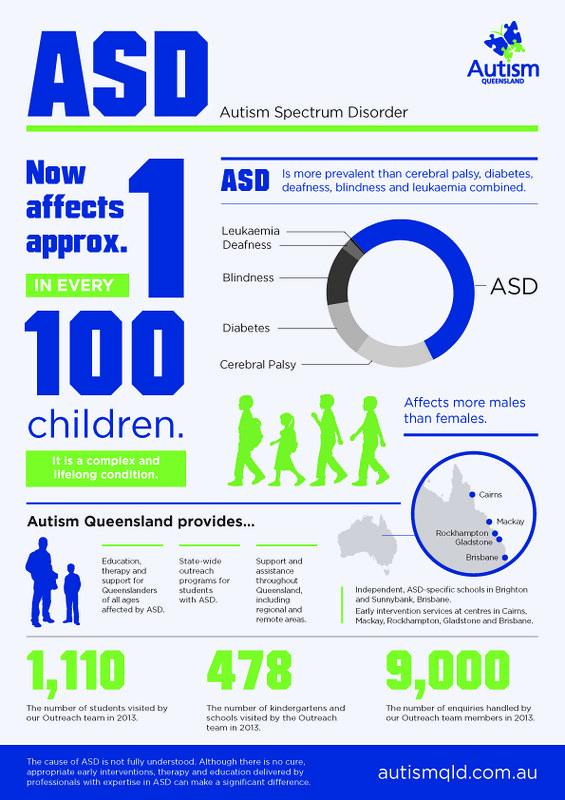
Autism Spectrum Disorder (ASD) is a developmental disorder that affects communication and behavior. It is a spectrum disorder, meaning that the symptoms and severity can vary widely from person to person. However, there are some common symptoms that can help identify individuals with ASD.
Early detection and intervention are crucial for individuals with ASD, as it can help improve their quality of life and provide them with the support they need. In this article, we will explore the symptoms of autism spectrum disorder and how they can manifest in different individuals.
Difficulty with Social Interaction
One of the hallmark symptoms of ASD is difficulty with social interaction. Children and adults with ASD may have trouble understanding social cues, making eye contact, or engaging in conversation. They may also have difficulty with empathy and understanding the emotions of others. This can make it challenging for them to form and maintain relationships.
Individuals with ASD may also struggle with understanding the unspoken rules of social interaction, such as taking turns in conversation or understanding personal space. This can lead to social isolation and difficulties in school or the workplace. It is important for caregivers and educators to provide support and teach social skills to individuals with ASD.
Repetitive Behaviors and Interests
Another common symptom of ASD is the presence of repetitive behaviors and interests. This can manifest as repetitive movements, such as hand-flapping or rocking back and forth, as well as a fixation on specific topics or activities. For example, a child with ASD may become intensely focused on a particular topic, collecting objects related to it, and talking about it obsessively.
These repetitive behaviors and interests can provide comfort and structure for individuals with ASD, but they can also interfere with their daily functioning. It is important for caregivers to provide support and encouragement for more varied interests and activities, while also recognizing the importance of these repetitive behaviors in the individual’s life.
Sensory Sensitivities
Many individuals with ASD also experience sensory sensitivities, meaning that they may be acutely sensitive or indifferent to certain sensory stimuli. This can include heightened sensitivity to loud noises, bright lights, or certain textures, as well as a lack of response to pain or temperature.
These sensory sensitivities can be overwhelming for individuals with ASD and may lead to meltdowns or withdrawal from certain environments. It is important for caregivers and educators to recognize these sensitivities and provide a supportive environment for individuals with ASD to thrive.
Communication Challenges
Individuals with ASD may also experience difficulties with communication. This can manifest as delayed speech development, limited use of gestures, or echolalia (repeating phrases or words). They may also have trouble understanding the nuances of language, such as sarcasm or metaphors.
It is important for caregivers and educators to provide support for communication development, such as speech therapy or alternative communication methods. With the right interventions, individuals with ASD can learn to communicate effectively and express their needs and desires.
Rigid Thinking and Difficulty with Change
Another symptom of ASD is rigid thinking and difficulty with change. Individuals with ASD may have a strong preference for routine and may become upset or anxious when their routine is disrupted. They may also have trouble adapting to changes in their environment or schedule.
Caregivers and educators can help individuals with ASD by providing structure and predictability, while also gradually exposing them to new experiences and changes. With support, individuals with ASD can learn to adapt to new situations and become more flexible in their thinking.
Intellectual and Developmental Differences
It is important to note that individuals with ASD may also have intellectual and developmental differences. Some individuals may have exceptional abilities in certain areas, such as mathematics or music, while others may have intellectual disabilities. It is important for caregivers and educators to recognize and support these differences, providing appropriate interventions and accommodations to help individuals with ASD reach their full potential.
Challenging Behaviors
Challenging behaviors, such as aggression or self-injury, can also be a symptom of ASD. These behaviors are often a result of frustration, sensory overload, or difficulty communicating their needs. It is important for caregivers and educators to understand the underlying causes of these behaviors and provide support and interventions to help individuals with ASD manage their emotions and behaviors.
Associated Medical and Mental Health Issues
Individuals with ASD may also have associated medical and mental health issues, such as anxiety, depression, epilepsy, or gastrointestinal issues. It is important for caregivers and healthcare providers to be aware of these potential issues and provide appropriate interventions to address them.
Early Warning Signs
Recognizing the early warning signs of ASD can help provide early intervention and support for individuals with ASD. Some early signs to look out for include a lack of response to their name, delayed speech or language skills, avoiding eye contact, and repetitive movements or play patterns.
If caregivers or educators notice any of these early warning signs, it is important to seek an evaluation from a healthcare professional who specializes in ASD. Early intervention can make a significant difference in the lives of individuals with ASD.
Understanding and Acceptance
It is important for society to understand and accept individuals with ASD, recognizing their unique abilities and challenges. By providing support and accommodations, individuals with ASD can thrive and contribute to their communities in meaningful ways.
With greater awareness and understanding, individuals with ASD can live fulfilling lives and reach their full potential. It is up to all of us to create a supportive and inclusive environment for individuals with ASD.












